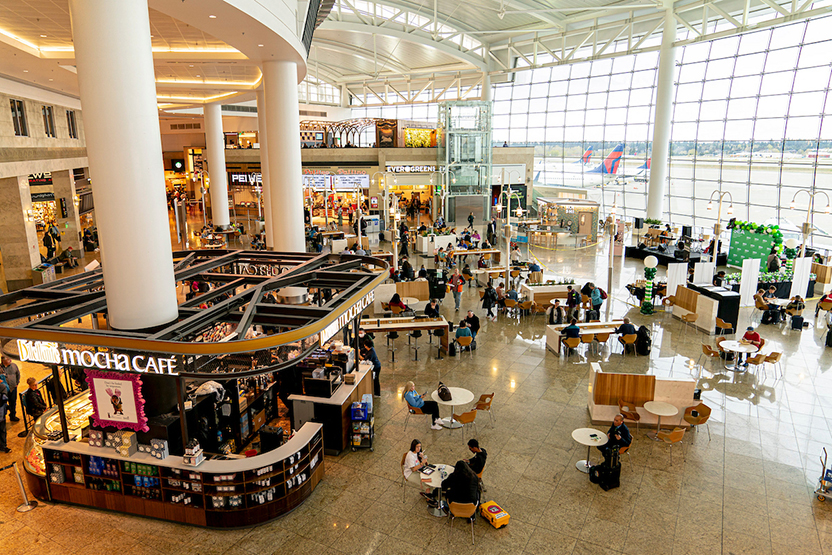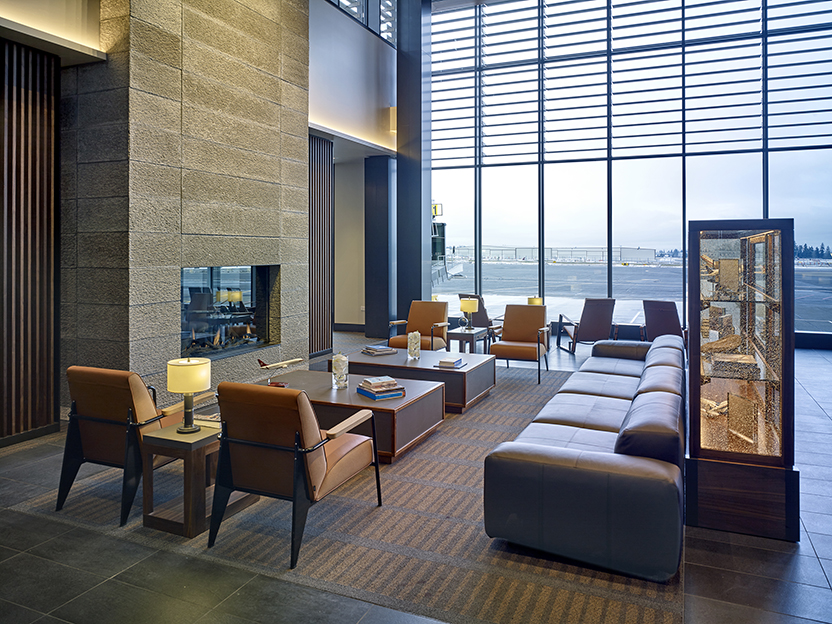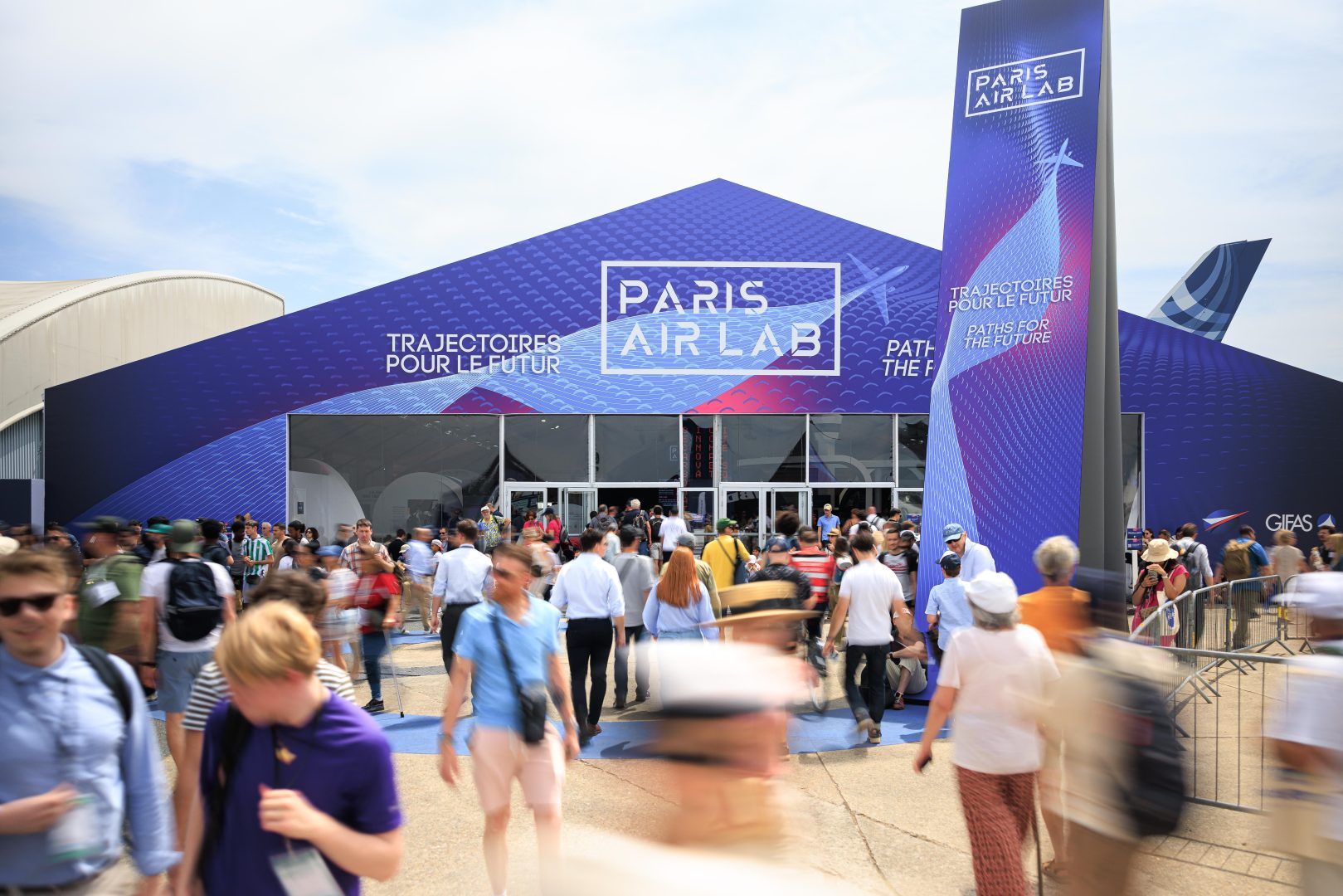Aerospace
Here, innovation and tradition are on the same plane.
Home to the largest aerospace supply chain in the United States
Greater Seattle leads the way in commercial aerospace innovation with a rich ecosystem of companies and talent that has evolved over more than a century of research, development and manufacturing. This pioneering spirit nurtures an environment at the intersection of aerospace and technology unlike anywhere else on Earth.


Strength in Numbers
From Boeing to Blue Origin, our pioneering spirit has revolutionized commercial air travel, space exploration and satellite communications. Aerospace sector is projected to grow 5% in Greater Seattle from 2024-2029.
Billion
GRP (2024)
Billion
Exports over the last 5 years
Jobs
Companies
Space Companies
Leading Aerospace Companies in Greater Seattle
Map of Leading Aerospace Companies in Greater Seattle
To explore the custom aerospace map, click the menu icon in the top left corner to view a list of subcategories. Select any category to see relevant companies on the map and click the markers for more details.
Sustainable Innovation for the Future
From maximizing in-flight efficiency with artificial intelligence to the development of new energy sources for rocket propulsion, Greater Seattle companies are engineering new solutions to tackle the world’s most difficult challenges.
Hydrogen Aviation
AeroTEC and magniX have partnered to establish a Hydrogen Aviation Test and Service Center in Washington State. This initiative positions the region at the forefront of aviation decarbonization efforts.
Alaska Airlines is advancing the largest hydrogen-powered commercial aircraft project by providing a Bombardier Q400 to ZeroAvia. This aircraft, stationed in Everett, WA, will undergo a transformation to incorporate a hydrogen-electric propulsion system, marking a pivotal step towards the adoption of zero-emission flight technology.

Flight Testing
Since its initial flights in 2012, the Boeing ecoDemonstrator program has tested more than 250 technologies to help decarbonize aviation, improve operational efficiency, and enhance safety and the passenger experience. Approximately a third of tested technologies have progressed onto Boeing’s products and services.

Electrified Aviation
The Eviation Alice successfully completed its first flight of its electric aircraft in Washington State. It is a nine-passenger electric aircraft – the only flight proven all-electric commuter aircraft of its size. It is built around MagniX’s industry-leading electric propulsion system, which is also based in Greater Seattle in Arlington, WA.

Emerging Technologies
In Greater Seattle, Boeing is leading the charge in emerging aviation technologies with its “Cascade” Climate Impact Model, a comprehensive tool designed to evaluate the effectiveness of diverse sustainability solutions in reducing aviation’s carbon emissions. This effort is complemented by Alaska Star Ventures, the venture capital arm of Alaska Airlines, which is dedicated to investing in groundbreaking airline technologies. Their commitment is underscored by a goal to reach net-zero carbon emissions by 2040, showcasing a strong focus on environmental stewardship within the aviation industry.

SAF
The new Research and Development Center for Sustainable Aviation Fuels (SAF) at Paine Field is the world’s first facility of its kind to collect, sample, and distribute SAF at a scale needed for widespread use in planes, including the largest aircrafts. SkyNRG has chosen Washington state for a new $800M sustainable aviation fuel plant to produce about 30 million gallons of SAF per year.

R&D
Co-led by Washington State University and the Massachusetts Institute of Technology, ASCENT – the Aviation Sustainability Center – is a cooperative aviation research organization funded by the FAA, NASA, the Department of Defense, Transport Canada, and the Environmental Protection Agency. ASCENT works to create science-based solutions for the aviation industry’s biggest challenges.

Where sustainability
goes above and beyond.
In the Space Race, Greater Seattle is a Global Leader
The Greater Seattle space economy has more than doubled in four years given longstanding activity in the aerospace sector, high-tech manufacturing resources, information technology assets, and a strong pool of talent.
The Greater Seattle region boasts more than 90 space companies in the Greater Seattle region.
- Aerojet Rocketdyne recently received a $67 million contract award from Lockheed Martin to provide propulsion systems for the Orion spacecraft.
- Amazon’s Project Kuiper has secured the largest commercial procurement of launch vehicles for its satellite constellation in history.
- BlackSky revenues are up 92% over last year with a strong trend of multi-year contract wins valued up to $1.3 billion.
- Microsoft Azure Space is the platform and ecosystem of choice for the mission needs of the space community and beyond.
- NASA has selected Blue Origin to develop a lunar lander to transport astronauts on Artemis missions. The value of the fixed price award is $3.4 billion.
- SpaceX Starlink has surpassed 4,000 satellites and 1.5 million subscribers.
- Stoke Space has received repeated investments from the venture arm for the U.S. intelligence community.
- Employment concentration is 8.17 for Guided Missile and Space Vehicle Propulsion Unit and Propulsion Unit Parts Manufacturing.

Greater Seattle is Satellite Central
Greater Seattle is a significant space hub with more than 90 space companies in the region. 50% of all operational satellites in Earth orbit are made right here. Of all current and future FCC approved satellites, 78% will be made in Washington.
More than half of all operational satellites in orbit are manufactured in Washington State.
Deliver to the World
Greater Seattle is the logistics and transportation hub of the Pacific Northwest and your direct access to the world.



The talent to take flight
The metropolitan area of Greater Seattle has the second highest employment level in Aerospace Engineers in the nation, according to the Bureau of Labor Statistics (May, 2023). Several key programs continue to bolster the talent pipeline. Aircraft manufacturing has an employment concentration of 18.81, guided missile and space vehicle propulsion unit and propulsion unit parts manufacturing is 8.17, and other aircraft parts and auxiliary equipment manufacturing is 6.32.
Greater Seattle Aerospace News
Latest News
Greater Seattle is leading the world in developing new aerospace technologies to reduce dependence on carbon-based fuel
The new Research and Development Center for Sustainable Aviation Fuels (SAF) at Seattle Paine Field International Airport is the world’s first facility of its kind to collect, sample, and distribute SAF at a scale needed for widespread use in planes, including the largest aircraft.
Aerospace Incentives
Washington recently passed a new law that creates a per-gallon incentive for SAF with lifecycle greenhouse gas emissions that are at least 50 percent lower than traditional jet fuel. Other incentives include:
No personal state income tax.
No corporate income tax.
No inventory tax.
Family-wage jobs credit.
No sales or use tax on machinery and equipment used in manufacturing operations.
No sales or use tax for aerospace businesses for computer hardware/software/peripherals.
No retail sales or use tax for the construction of new facilities used for airplane repair & maintenance.
Foreign trade zones.
Workforce training grants and credits.
Other project-specific state & local programs.
Ready to take advantage of everything Greater Seattle has to offer?




















